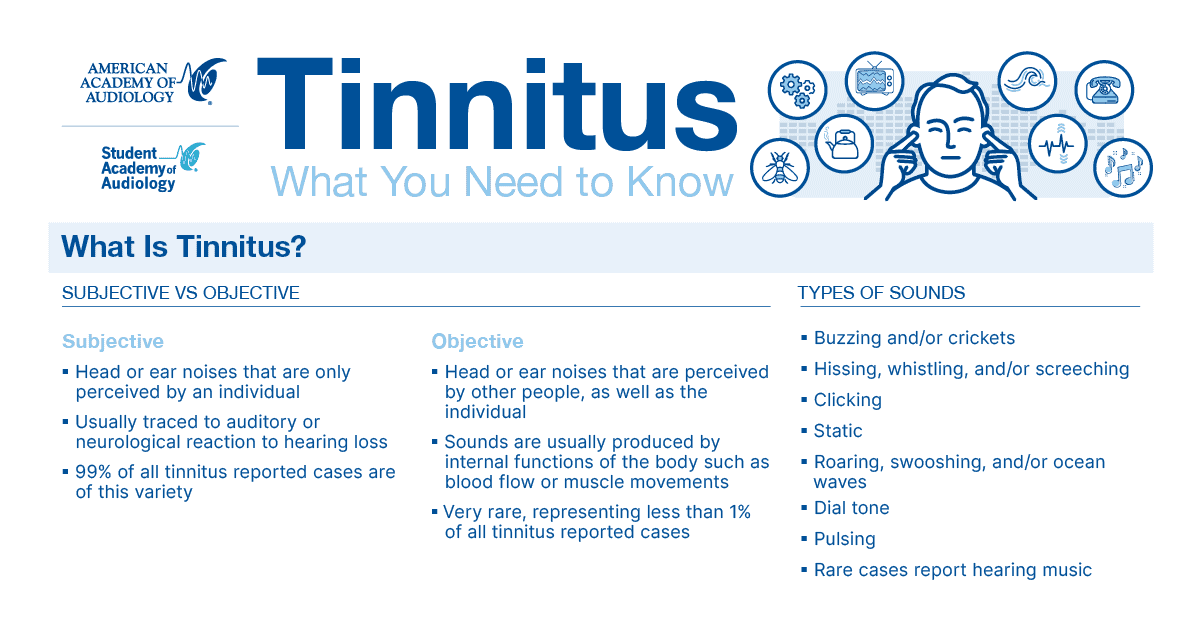What Is Tinnitus?
What Is Tinnitus?
American Academy of Audiology May 5, 2022 10:29 am
Tinnitus Causes
American Academy of Audiology May 5, 2022 10:30 am
Tinnitus: Role of the Audiologist
American Academy of Audiology May 5, 2022 10:38 am
Tinnitus is the perception of noises within the ears or head (e.g., ringing, buzzing, whooshing, roaring, crickets, etc.) in the absence of an external sound.
Approximately 30 million Americans experience tinnitus on a regular basis. However, approximately one to two percent of the population have tinnitus severe enough that may lead to the following:
- Anxiety
- Depression
- Problems with family and friends
- An inability to concentrate
- Lack of sleep

Gain a clearer understanding of the topic through our informative infographics.
Audiologists work with people with debilitating tinnitus for management of their symptoms.
There is no one-size-fits-all program for tinnitus management. In general, most programs run by audiologists address some or all of the following areas.
Initial Tinnitus Evaluation
The audiologist will take a case history in order to obtain specific information regarding the patient’s tinnitus as well as administer a hearing evaluation. Often, questionnaires are administrated to obtain additional information about how the tinnitus may be affecting the patient’s quality of life. Additional audiologic testing, such as measuring the loudness and/or pitch of a patient’s tinnitus, may be completed as well.
Medical Follow-up
A medical evaluation may be recommended when a patient reports differences in the volume of the tinnitus between ears as well as tinnitus in only one ear.
Hearing Aids or Tinnitus Masking Devices
Tinnitus is common in patients with hearing loss. For patients with hearing loss, the audiologist can help to determine whether a hearing aid will help to reduce tinnitus as well as improve hearing. Other electronic devices, such as tinnitus maskers (steady-state sounds presented to the ears) generate a noise to help provide relief from tinnitus.
Counseling
There are numerous techniques for tinnitus, including behavioral, medical, prosthetic or pharmacological treatments. Cognitive Behavioral Therapy (CBT) is the only treatment that has been thoroughly researched. CBT is based on the perception of tinnitus and determines the impact on the patient’s well-being and lifestyle. CBT does not eliminate tinnitus, but restructures the patient’s reaction to it.
References
Henry, J. L., & Wilson, P. H. (2001). The Psychological Management of Chronic Tinnitus: A Cognitive-Behavioral Approach. Boston: Allyn and Bacon.
Kochkin S, Tyler R, Born J. (2011) MarkeTrak VIII: The Prevalence of Tinnitus in the United States and the Self-Reported Efficacy of Various Treatments. Hearing Review18(12):10-26.

